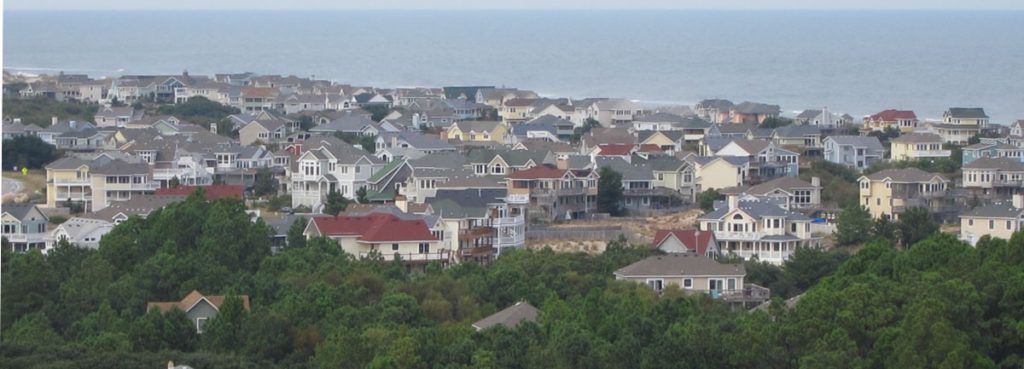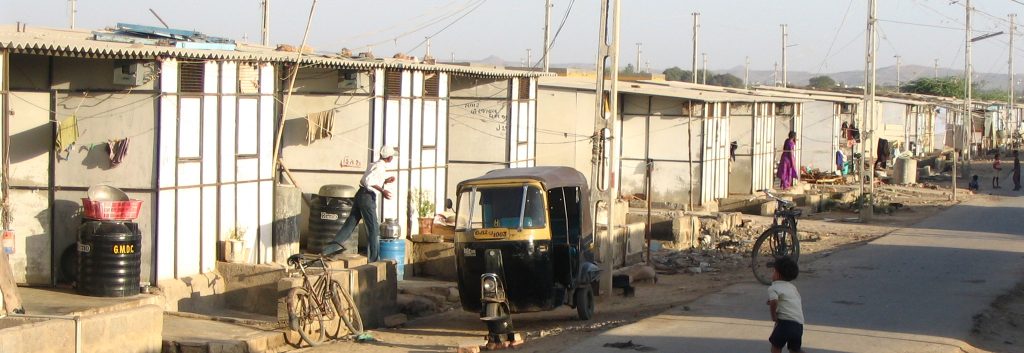Disaster Resilience In Coastal United States: Enhancing Local Capacities Through Hazard Mitigation Plan Implementation

Funding: Division of Research and Graduate Studies, East Carolina University
Status: Completed
The Research
Despite an extensive and growing scholarship on hazard mitigation as a critical component of disaster resilience, understanding of hazard mitigation plan implementation at the local level (county and municipality) remains limited. This study focuses on issues faced by counties in coastal North Carolina to implement multi-jurisdictional (county-level) hazard mitigation plans. In doing so, the study seeks to enrich knowledge and understanding of local resilience, specifically by examining the implementation of hazard mitigation plans subsequent to its adoption at the local county level.
As a place-based study, this research focuses on the 20 coastal counties of North Carolina, specifically those under the Coastal Area Management Act (CAMA). The 20 CAMA counties are vulnerable to multiple hazards (e.g. floods, hurricanes, tornadoes) and have county level hazard mitigation plans. Yet, the implementation of the mitigation plans has been highly uneven and varies within and across the CAMA counties. The proposed study examines why this is the case
Relevant Publications
Article Manuscript (In Preparation): Mukherji, A. Building local resilience: Hazard mitigation plan implementation in coastal North Carolina.
Re-Housing Urban Haiti After The Earthquake: Dual Role of Social Capital

Funding: National Science Foundation Rapid Grant ($45,000), 04/2010 to 03/2011
Status: Completed
Research Team:
– Principal Investigator: Emel Ganapati, Associate Professor of Public Administration, Florida International University
– Co-Principal Investigator: Guitele Rahill, Associate Professor of Social Work, University of South Florida
– Senior Project Expert: Anuradha Mukherji, Associate Professor of City and Regional Planning, East Carolina University
The Research
Despite emerging literature regarding social capital in disaster recovery, the actual impact of social capital on the speed and quality of early post-disaster housing recovery is little understood. This study sought to enhance knowledge concerning the role of social capital, an important component of resilience, in the early recovery process following the January 12, 2010 Haiti earthquake in the Port-au-Prince metropolitan area. The project had three specific aims: (1) Document the pre-and post-disaster social capital in three socio-economically diverse Port-au-Prince communities; (2) Document the housing recovery process in three selected Port-au-Prince communities; and (3) Assess the impact of pre-and post-disaster social capital on the speed and quality of housing recovery in these communities.
The study involved two waves of data collection (a baseline and a follow-up) spaced six months apart in Haiti. In each wave, the project team conducted in-depth semi-structured interviews of policymakers/practitioners and community leaders and facilitated focus groups with community residents. The study aimed to capture time-sensitive and perishable longitudinal data on the earthquake in Haiti, thereby contributing to knowledge on early post-disaster housing recovery, social capital, and resilience.
Relevant Publications
Mukherji, A., Ganapati, N.E., Rahill, G.J. (2014). Expecting the unexpected: Field research in post-disaster settings. Natural Hazards, 73(2): 805-828. DOI: https://doi.org/10.1007/s11069-014-1105-8
Rahill, G.J., Ganapati, N.E., Clérismé, J.C., Mukherji, A. (2014). Shelter recovery in urban Haiti after the earthquake: The dual role of social capital. Disasters, 38(S1): S73-S93. DOI: https://doi.org/10.1111/disa.12051
Negotiating Housing Recovery in Post-Earthquake Urban Kutch, India

Funding: Periship Fellowship, Natural Hazards Center, University of Colorado at Boulder; Dean’s Normative Fellowship, University of California at Berkeley
Status: Completed
The Research
The 2001 Kutch earthquake, in Gujarat state in western India, destroyed 230,000 houses and damaged another 1 million. In Bhuj and Bachhau, urban centers close to the epicenter of the earthquake, single-family houses, squatter settlements, and high-rise apartments were destroyed, and public and private housing reconstruction programs were introduced to help communities rebuild their houses. However, five years after the disaster, in spite of interventions by local and global, public and private entities, many communities in both towns continued to struggle towards housing recovery. This project examines why some communities were able to rebuild and improve their overall housing conditions after the disaster, as opposed to others who struggled to achieve even pre-disaster housing standards.
Relevant Publications
Mukherji, A. (2018). Resilience at the margins: Informal housing recovery in Bachhau, India after the 2001 Gujarat quake. International Journal of Housing Policy, 18(2): 266-289. DOI: https://doi.org/10.1080/14616718.2016.1219648
Reprinted in: Housing Policy Innovation in the Global South, P. Monkkonen (Ed.) (2019). New York: Routledge
Mukherji, A. (2015). From tenants to owners: Housing renters after disaster in Bhuj, India. Housing Studies, 30(7): 1135-1157. DOI: https://doi.org/10.1080/02673037.2015.1008423
Mukherji, A., Ganapati, N.E., Rahill, G.J. (2014). Expecting the unexpected: Field research in post-disaster settings. Natural Hazards, 73(2): 805-828. DOI: https://doi.org/10.1007/s11069-014-1105-8
Mukherji, A. (2014). Post-disaster housing recovery: The promise and peril of social capital. Journal of Civil Society, 10(2): 119-143. DOI: https://doi.org/10.1080/17448689.2014.885787
Ganapati, N.E., Mukherji, A. (2014). Out of sync: Shared lessons from India and Turkey on World Bank funding and post-disaster planning for housing recovery. Natural Hazards Review, 15(1): 58-73. DOI: https://doi.org/10.1061/(ASCE)NH.1527-6996.0000120
Reprinted in: Urban Planning after Disasters, R.B. Olshansky (Ed.) (2017). Volume 4, Housing and Economy Recovery, Part 1: Housing Reconstruction Policies. New York: Routledge
Mukherji, A. (2010). Post-earthquake housing recovery in Bachhau, India: The homeowner, the renter, and the squatter. Earthquake Spectra, 26(4): 1085-1100. DOI: https://doi.org/10.1193/1.3474646
Ganapati, N. E. and A. Mukherji. (2009). World Bank and Post-Disaster Recovery Planning in Turkey and India: Need for Flexible Policies. Submitted to the U.S. Department of Housing and Urban Development
Other Publications
Mukherji, A. (2019). Funding flows: Transboundary considerations of disaster recovery. In Oxford Research Encyclopedia of Natural Hazard Science. Oxford University Press, Oxford, UK. DOI: https://doi.org/10.1093/acrefore/9780199389407.013.223
Ganapati, N.E. & Mukherji, A. (2019). ‘House Keeping’: Managing post-disaster housing recovery long term. In Frances L. Edwards (Ed.). Housing Recovery After Disasters. Lanham, Maryland: Lexington Books.
Mukherji, A. (2017). Post-disaster housing recovery. In Oxford Research Encyclopedia of Natural Hazard Science. Oxford University Press, Oxford, UK. DOI: https://doi.org/10.1093/acrefore/9780199389407.013.82
Mukherji, A. (2015). Land readjustment during post-disaster urban reconstruction. Journal of the American Planning Association, Special Issue, 80(4): 438-439. DOI: https://doi.org/10.1080/01944363.2014.989058